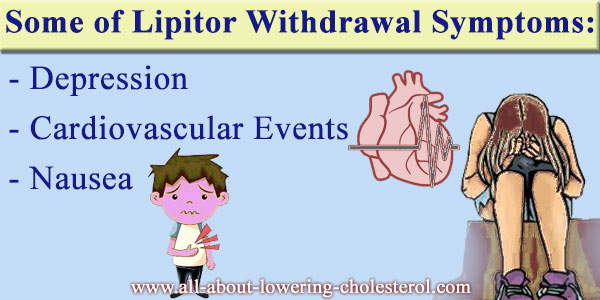
Patients report Lipitor withdrawal symptoms when discontinuing the use of the medications. Individuals react differently to the withdrawal and experience a variety of symptoms that range from mild to serious.
The drug manufacturing company, Pfizer, markets Lipitor as a cholesterol-lowering drug. Your doctor prescribes Lipitor along with proper diet, physical exercise, and weight management to decrease your risk of needing heart surgery or developing heart disease.
When you implement this combination of medication and healthy living, you lower your chance of experiencing a heart attack, stroke, or other related heart conditions.
Understanding How Lipitor Works
Before you can fully understand how Lipitor withdrawal symptoms develop, you must understand how your body handles cholesterol and how this drug lowers the amount of cholesterol in your body.
Because you hear many news reports about how a diet high in saturated fats and cholesterol leads to high cholesterol levels in the body, you may be surprised to discover your diet is not the only source of cholesterol. In fact, your diet provides less cholesterol than your body manufactures.
Your liver is the cholesterol factory of your body and makes cholesterol with the help of an important enzyme called HMG-CoA reductase. Lipitor inhibits this enzyme and is chemically referred to as an HMG-CoA reductase inhibitor. Lipitor changes the physiology of cholesterol making in your body.
Any medication that causes significant changes in your body should not be stopped suddenly because your body will not have time to adjust. This is why your body may experience Lipitor withdrawal symptoms if you go off the medication.
Some Lipitor Withdrawal Symptoms
Depression, Nausea, Heart Disease Risk?
You should never stop using Lipitor or any prescription medication without talking with your doctor. Your body could react in a number of ways with either mild or severe Lipitor withdrawal symptoms.
Some patients have reported feeling depressed and nauseated when discontinuing the use of Lipitor. Many patients complain of indigestion while others share that they experienced skin rashes. You may increase your risk of heart disease by rapidly discontinuing the use of this drug.
If you are taking Lipitor and begin experiencing side effects such as diarrhea, constipation, gas, headaches, or joint pain, talk with your doctor. If you are experiencing muscle weakness, pain, aches, or stiffness notify your doctor immediately because you could be at risk of a serious muscle disorder.
After Lipitor Withdrawal Symptoms
If you have gone off Lipitor and have passed through Lipitor withdrawal symptoms, you may be wondering what is next. How do you manage your cholesterol level without the medication?
The level of cholesterol in your body is dependent on how much cholesterol your body produces and your diet. Your daily living habits influence the ratio of good cholesterol to bad cholesterol in your blood. Genetics, sex, and age play a role in how much cholesterol your body makes and these factors cannot be changed. However, your daily living habits can change.
Leave this page and find out more about lipitor medication and other lipitor side effects
Leave Lipitor withdrawal symptoms & go to All About Lowering Cholesterol Homepage
References
(1) MedlinePlus (2011) Atorvastatin. Retrieved from www.nlm.nih.gov
